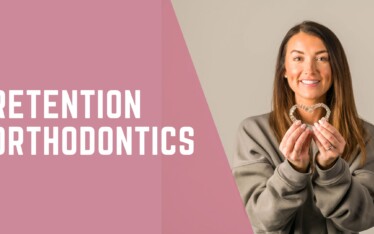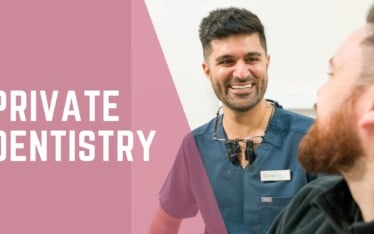Turkey Teeth – Is it really a good idea?
Let’s weigh things up…
Every year, thousands of people consider travelling abroad for complex and cosmetic dental treatments such as dental implants or veneers. Dental practices abroad often advertise as being much cheaper than the UK, but there is a reason for that. It is really important that people understand why before they embark on a life-changing journey. There are lots of risks that come with travelling abroad for dental treatment and before you commit to anything, it’s fundamental that you’re fully aware of all the risks involved and what to expect.
Regulatory Body
The most important difference to be aware of is regulations. Within the UK, you must be registered to the General Dental Council body of dental regulators to work within the UK and perform and treatment on a patient. There are strict, high standards that all dental care professionals within the UK must adhere to and this is hugely important and reassuring for patients to know. There is no guarantee that such organisations in other countries govern the practice of Dentistry with such strict standards of care. No matter where you plan on having dental treatment, it is very important to do some initial research on where your planned treatment will take place. Are the clinicians registered to a professional regulatory body? You can find out about health regulators and professional bodies in other countries by visiting www.healthregulation.org
Initial Consultations
Some overseas clinics will have a UK base, offering initial consultations before you travel abroad for treatment. An initial consultation, whether that be here in the UK or abroad is your chance to ask as many questions as possible so that you can feel safe and confident in your decision. You should always be assessed by a qualified dentist before being given a treatment plan and cost estimation prior to any treatment being carried out. If your consultation is in the UK, you can be sure that the dentist is registered with the General Dental Council. You can check if a dentist is registered by visiting the General Dental Council’s website, www.gdc-uk.org, and searching the online register or by calling them on 020 7167 6000. As part of your initial consultation, the dentist carrying out your assessment should ask for your full medical history, this is extremely important in establishing what treatment is safe and suitable for you. They should also be interested in your general health, whether you have suffered from any serious illnesses in the past, if you suffer from any chronic medical condition, whether you smoke, and if you’ve had surgery or a general anaesthetic in the past. Healthcare should always be received in person, a clinician and a patient should sit together and talk through treatment options that are possible and mutually agree a way forward. As technology advances, the opportunity for virtual consultations has arisen in dentistry. There will always be a place for the initial contact to be held virtually, for the patient to discuss their wishes and expectations of treatments and to be made aware of what treatments could be available to them. However, before a treatment plan is given and signed, an in-person consultation must occur to establish clinician findings, this is for all treatment, including implants and orthodontics.
Valid and informed consent
Direct contact is the only way to gain valid consent. You need to have been given all the information about what the treatment involves and the full process. This includes the benefits and risks of the treatment and whether there are any other treatments options available to you. Before your treatment can begin, the dentist needs to make sure you have given valid, informed consent. That is impossible without some form of direct interaction as you need to be able to ask questions. The patient should be given the opportunity to ask any questions they may have that can help them make a decision regarding their treatment plan. The patient needs to fully understand what they are signing up for, what the outcome (including pros and cons) of the treatment will be, and why. These should not come as a surprise to you on the day of treatment. The patient should be fully aware of what they are signing up for, why and how it will benefit them and how the treatment will be performed. If there are any other suitable treatment options, these should have been explained too. The patient should understand the likelihood or possible outcomes of the treatment and how long they should expect the results to last. If there are any risks to the proposed treatment, these should be fully explained to the patient.
Why is there a price difference?
At first you may be surprised at how much cheaper your proposed treatment is abroad compared to what your dentist here in the UK has quoted. There is a reason for that. Just like the clinicians that are performing the treatment, the instruments and materials that are used also have to be regulated. They must be routinely audited and researched, including COSHH (control of hazardous substances harmful to health) risk assessments completed prior to use and constantly being improved and developed to give the best clinical results possible. When you are considering treatment abroad and are weighing up the costs, remember to take into consideration the expense of travel, accommodation and the potential need to re-visit the country of treatment should you have any problems or emergencies.
Once it’s done, it’s done!
Please remember that once you take a drill to your tooth, there is no going back. Enamel does not re-grow so once it has been removed you cannot simply change your mind. Most clinics abroad provide invasive dental treatments to achieve quick aesthetics results such as veneers or crowns. However, these treatments are not always the most indicated and the desired outcome could be achieved by minimally invasive treatments. This may not seem relevant to the non-dentally trained person; however, it is extremely important to understand the implications of invasive dental work. If the tooth is over prepared for a restoration, this can have consequences such as pain and nerve damage resulting in the need for root canal treatment or even extraction. If the restorations do not fit well, this can irritate your gums and result in pain, swelling and inflammation, bleeding and gum disease.
Every time a tooth is treated, it causes a nerve response. Usually, the nerve settles down quickly and everything goes back to normal. However, if the treatment performed is to invasive, the nerve response may be unlikely to settle down and further treatment to the nerve would then be needed to resolve the pain- usually either root canal treatment or extraction.
Questions you could ask your clinician:
Wherever your consultation, don’t be afraid to ask the clinicians lots of questions, even if they seem blunt or obvious. Some of the questions you may want to ask are:
- Who will be carrying out my treatment and what qualifications do they have?
- Do you have any references or testimonials from previous patients?
- How many times have you carried out the procedure I am having?
- What are the rates of success, complication, readmission and infection?
- Are you regulated by a professional body?
- Is the work guaranteed for a certain period of time?
- What aftercare do you provide?
- What happens if I am unhappy with the results?
- If there are complications and I need further treatment, is this included in the initial cost?
- Do you have insurance to cover this procedure? – I would not put this in don’t forget our patients will read this too
- Do you have a complaints system in place? Can I see a copy of it? – I would not put this in don’t forget our patients will read this too
- Who can I contact for advice after the treatment?
If you are considering complex or aesthetic dental treatment, get in touch with us today to arrange an initial, complimentary consultation with our dedicated treatment coordinator to discuss your concerns and goals.



